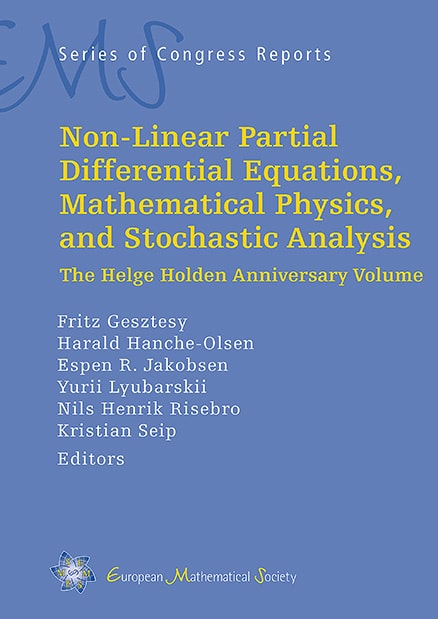Factorizations and Hardy–Rellich-type inequalities
Fritz Gesztesy
Baylor University, Waco, USALance Littlejohn
Baylor University, Waco, USA

A subscription is required to access this book chapter.
Abstract
The principal aim of this note is to illustrate how factorizations of singular, even-order partial differential operators yield an elementary approach to classical inequalities of Hardy–Rellich-type. More precisely, introducing the two-parameter -dimensional homogeneous scalar differential expressions , , , , , and its formal adjoint, denoted by , we show that nonnegativity of on implies the fundamental inequality (*)
\[ \tag{$*$}\label{0.1} \begin{aligned} \int_{\mathbb R^n} [(\Delta f)(x)]^2 \, d^n x & \geq [(n - 4) \alpha - 2 \beta] \int_{\mathbb R^n} |x|^{-2} |(\nabla f)(x)|^2 \, d^n x \\ & \quad - \alpha (\alpha - 4) \int_{\mathbb R^n} |x|^{-4} |x \cdot (\nabla f)(x)|^2 \, d^n x \\ & \quad + \beta [(n - 4) (\alpha - 2) - \beta] \int_{\mathbb R^n} |x|^{-4} |f(x)|^2 \, d^n x,\\ &&\llap {f \in C^{\infty}_0(\mathbb R^n \setminus \{0\}).} \end{aligned} \]A particular choice of values for and in (*) yields known Hardy–Rellich-type inequalities, including the classical Rellich inequality and an inequality due to Schmincke. By locality, these inequalities extend to the situation where is replaced by an arbitrary open set for functions .
Perhaps more importantly, we will indicate that our method, in addition to being elementary, is quite flexible when it comes to a variety of generalized situations involving the inclusion of remainder terms and higher-order operators.